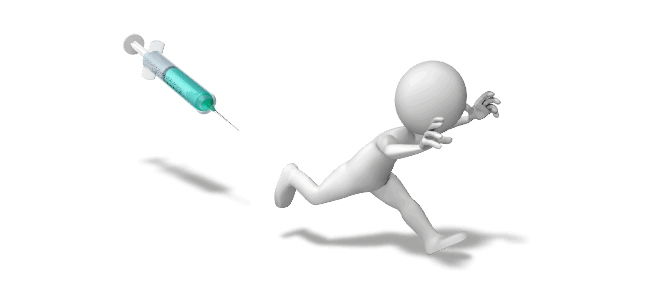The Genetics Of Coffee
The genetics of coffee is a fascinating and complex field that explores the hereditary and molecular characteristics of coffee plants. Two main species dominate the commercial coffee industry: Coffea arabica (Arabica) and Coffea canephora (Robusta). Here's an overview of the key aspects of coffee genetics:
1. Species and Varieties
Coffea arabica (Arabica):
Genetic Makeup: Arabica coffee is a tetraploid (possesses four sets of chromosomes) with 44 chromosomes. It is a result of a cross between two diploid species, Coffea eugenioides and Coffea canephora.
Varieties: Arabica coffee has numerous varieties such as Bourbon, Typica, Geisha, SL28, and SL34, each with unique genetic traits influencing flavor, yield, and disease resistance.
Coffea canephora (Robusta):
Genetic Makeup: Robusta coffee is a diploid species with 22 chromosomes.
Varieties: Robusta varieties are generally more resistant to pests and diseases compared to Arabica but are often considered less flavorful. Key varieties include Kouillou and Congensis.
2. Genomic Studies
Arabica Genome: Sequencing the genome of Arabica has been challenging due to its tetraploid nature. However, recent advances have made it possible to identify genes associated with disease resistance, caffeine production, and quality traits.
Robusta Genome: The genome of Robusta has been sequenced, providing insights into genes related to stress resistance, yield, and biochemical pathways involved in flavor and aroma.
3. Breeding and Hybridization
Traditional Breeding: Involves selecting plants with desirable traits and cross-breeding them to produce improved varieties. This process is time-consuming and requires several generations to achieve stable traits.
Hybrid Varieties: New hybrids such as Arabusta (a cross between Arabica and Robusta) combine the favorable traits of both species, such as improved disease resistance from Robusta and better flavor profiles from Arabica.
Marker-Assisted Selection (MAS): Uses molecular markers linked to desirable traits to accelerate the breeding process by selecting plants with the desired genes at an early stage.
4. Genetic Engineering and Biotechnology
CRISPR/Cas9: This gene-editing technology holds potential for precise modifications in the coffee genome, such as enhancing disease resistance, improving flavor, and increasing yield.
Transgenic Approaches: Though controversial and subject to regulatory approval, transgenic techniques can introduce new genes into coffee plants to confer desirable traits, such as pest resistance or improved environmental adaptability.
5. Challenges and Future Directions
Climate Change: Rising temperatures and changing rainfall patterns threaten coffee production. Genetic research aims to develop varieties that are more resilient to these changes.
Disease Resistance: Diseases like coffee leaf rust (Hemileia vastatrix) and coffee berry disease (Colletotrichum kahawae) are major threats. Identifying and incorporating resistant genes into new varieties is a priority.
Flavor and Quality: Genetics plays a crucial role in determining the flavor profile of coffee. Research focuses on understanding the genetic basis of flavor compounds and breeding varieties with superior taste.
Conclusion
The genetics of coffee is a rapidly evolving field that combines traditional breeding methods with modern genomic and biotechnological approaches. Advances in this area promise to enhance coffee quality, yield, and sustainability, ensuring the future of one of the world's most beloved beverages.
The Genetics Of Coffee
The genetics of coffee is a fascinating and complex field that explores the hereditary and molecular characteristics of coffee plants. Two main species dominate the commercial coffee industry: Coffea arabica (Arabica) and Coffea canephora (Robusta). Here's an overview of the key aspects of coffee genetics:
1. Species and Varieties
Coffea arabica (Arabica):
Genetic Makeup: Arabica coffee is a tetraploid (possesses four sets of chromosomes) with 44 chromosomes. It is a result of a cross between two diploid species, Coffea eugenioides and Coffea canephora.
Varieties: Arabica coffee has numerous varieties such as Bourbon, Typica, Geisha, SL28, and SL34, each with unique genetic traits influencing flavor, yield, and disease resistance.
Coffea canephora (Robusta):
Genetic Makeup: Robusta coffee is a diploid species with 22 chromosomes.
Varieties: Robusta varieties are generally more resistant to pests and diseases compared to Arabica but are often considered less flavorful. Key varieties include Kouillou and Congensis.
2. Genomic Studies
Arabica Genome: Sequencing the genome of Arabica has been challenging due to its tetraploid nature. However, recent advances have made it possible to identify genes associated with disease resistance, caffeine production, and quality traits.
Robusta Genome: The genome of Robusta has been sequenced, providing insights into genes related to stress resistance, yield, and biochemical pathways involved in flavor and aroma.
3. Breeding and Hybridization
Traditional Breeding: Involves selecting plants with desirable traits and cross-breeding them to produce improved varieties. This process is time-consuming and requires several generations to achieve stable traits.
Hybrid Varieties: New hybrids such as Arabusta (a cross between Arabica and Robusta) combine the favorable traits of both species, such as improved disease resistance from Robusta and better flavor profiles from Arabica.
Marker-Assisted Selection (MAS): Uses molecular markers linked to desirable traits to accelerate the breeding process by selecting plants with the desired genes at an early stage.
4. Genetic Engineering and Biotechnology
CRISPR/Cas9: This gene-editing technology holds potential for precise modifications in the coffee genome, such as enhancing disease resistance, improving flavor, and increasing yield.
Transgenic Approaches: Though controversial and subject to regulatory approval, transgenic techniques can introduce new genes into coffee plants to confer desirable traits, such as pest resistance or improved environmental adaptability.
5. Challenges and Future Directions
Climate Change: Rising temperatures and changing rainfall patterns threaten coffee production. Genetic research aims to develop varieties that are more resilient to these changes.
Disease Resistance: Diseases like coffee leaf rust (Hemileia vastatrix) and coffee berry disease (Colletotrichum kahawae) are major threats. Identifying and incorporating resistant genes into new varieties is a priority.
Flavor and Quality: Genetics plays a crucial role in determining the flavor profile of coffee. Research focuses on understanding the genetic basis of flavor compounds and breeding varieties with superior taste.
Conclusion
The genetics of coffee is a rapidly evolving field that combines traditional breeding methods with modern genomic and biotechnological approaches. Advances in this area promise to enhance coffee quality, yield, and sustainability, ensuring the future of one of the world's most beloved beverages.













